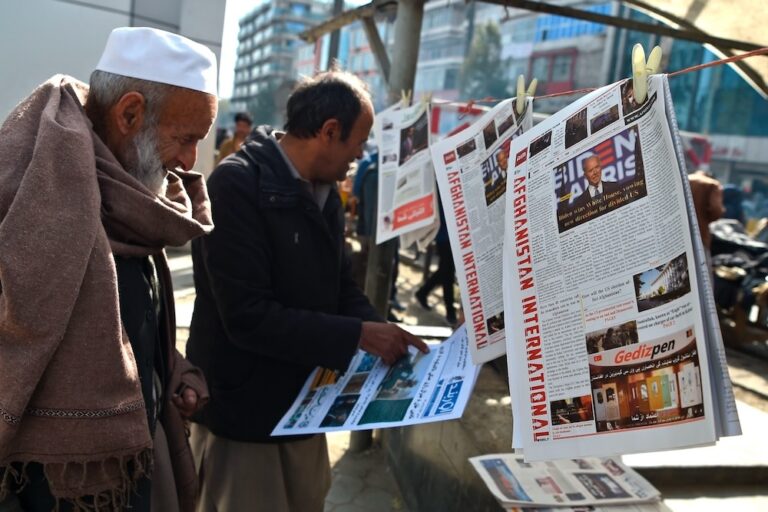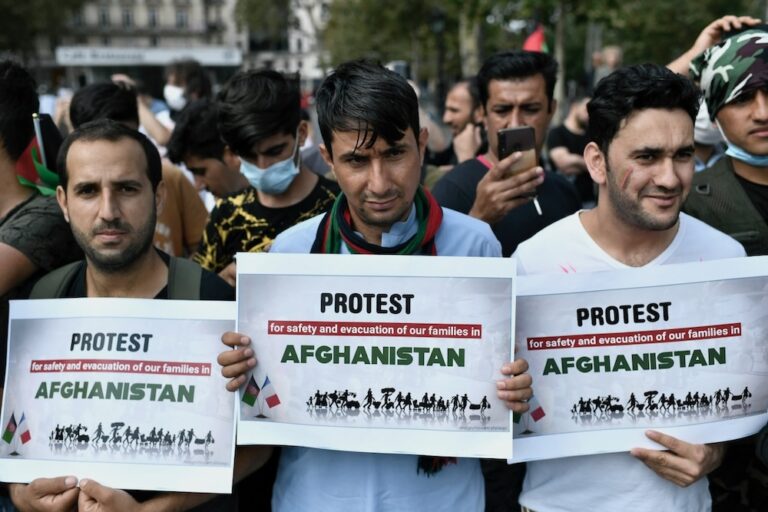This recent ban follows previous restrictions on media activities in the province.
This statement was originally published on afjc.media on 14 October 2024.
In a worrying development for press freedom in Afghanistan, television channels in Takhar Province have ceased operations following a directive from provincial authorities prohibiting the broadcasting of footage featuring living beings. The Afghanistan Journalists Center (AFJC) condemns this measure as a significant setback for media freedom in the province.
The ban was communicated by Molawi Habibullah Hanafi, the head of the Taliban’s Department for the Promotion of Virtue and Prevention of Vice in Takhar Province, during a meeting with local media representatives on October 13. According to a local journalist who requested anonymity for safety concerns, Hanafi stated that the directive aligns with the vice and virtue laws announced in August. He warned that any non-compliance would result in penalties for media outlets.
As a direct consequence of this directive, the provincial branch of the National Television (RTA) in Takhar has halted the operation. Additionally, privately-owned channels Mah-e-Naw and Reyhan have ceased their broadcasts. The ramifications of the ban extend to other media entities, including the local branch of the state-owned Bakhtar News Agency and several privately-owned radio stations operating online.
This recent ban follows previous restrictions on media activities in the province. On September 25, the Department for the Promotion of Virtue and Prevention of Vice prohibited the filming of official meetings and conducting video interviews. Takhar is now the second province, after Kandahar, where similar restrictions have been enforced, as detailed in Article 17 of the Taliban’s vice and virtue laws.
AFJC strongly urges Taliban authorities to reconsider this ban and other restrictive media measures enacted in the past three years. AFJC contends that these actions undermine the fundamental principles of media freedom codified in Afghanistan media law.
Furthermore, AFJC calls on the Taliban to allow journalists and media outlets to operate without fear of reprisal, thereby fostering an environment conducive to free expression and the dissemination of information.



